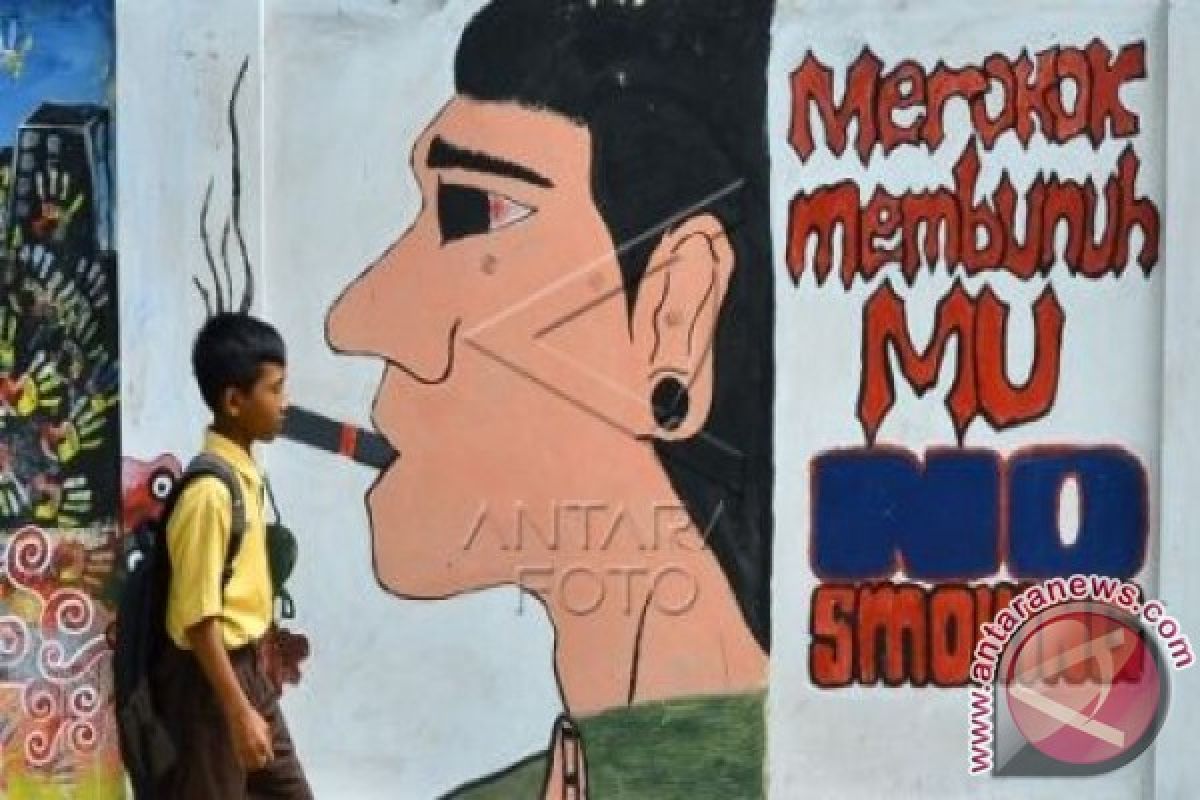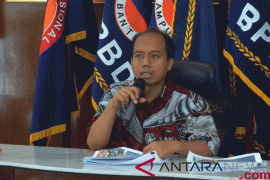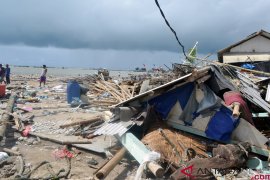Despite the fact that people called him a hero, Nugroho was a victim of passive smokingJakarta (ANTARA) - National Disaster Mitigation Agency (BNPB) spokesman Sutopo Purwo Nugroho, 49, popularly called "Pak Topo," breathed his last in Guangzhou, China, on July 7, after battling stage IVB lung cancer for the past two years.
Nugroho's demise is a huge loss, for he was well-known as a great civil servant, who remained committed to his professional work as the agency’s spokesperson.
Despite his ongoing medical treatment, Nugroho continued to hold regular press briefings to furnish latest information on the impact and efforts to mitigate catastrophic disasters, such as the Lombok and Palu earthquakes and tsunamis, the BNPB stated.
Sutopo also garnered respect from the nation, for he continued to provide the most up-to-date information on natural disasters on social media platforms, such as Twitter and Instagram, despite being in hospital for receiving chemotherapy. He had been active through his Twitter account, @Sutopo_PN, which has over 235 thousand followers, to update the public on the latest information on disasters in the country.
“He is a hero of humanity who continued to serve the public even in sickness,” BNPB Head Doni Monardo emphasized. “May he rest in peace,” he added.
Related news: Indonesia suffers tremendous loss in BNPB spokesperson's passing
Despite the fact that people called him a hero, Nugroho was a victim of passive smoking.
He suffered from lung cancer following exposure to smoke in his work environment. Despite claiming to be healthy and a non-smoker, he oftentimes found himself in a room full of smoke and was compelled to breathe the polluted air. Hence, his efforts to maintain a healthy lifestyle were marred owing to exposure to cigarette smoke.
Chairperson of the Indonesian Consumer Foundation (YLKI) Tulus Abadi concurred to the fact that Nugroho was one of the best academics in Indonesia.
“The death of Sutopo Purwo Nugroho, head of Data, Information and Public Relations of BNPB, should serve as an eye-opener to all on the importance of smoke-free environments,” he reiterated.
Related news: Indonesians smoke 302 billion pieces of cigarettes
Ensuring a smoke-free environment is deemed necessary, so that non-smokers are not exposed to cigarette smoke. Non-smokers still have a likelihood of contracting cancer, in this case, affecting the lungs. A non-smoker has a four-fold risk of developing cancer. However, this can be prevented by providing no-smoking areas.
While drawing reference to Basic Health Research in 2013, Abadi noted that the number of non-smokers in Indonesia had reached more than 90 million people; more than 12 million comprise children up to the age of four.
“People, who smoke cigarettes are 13.6 times more likely to suffer from lung cancer than people, who do not smoke,” Abadi cautioned.
Nonetheless, the 2018 Basic Health Research revealed a shocking result that the prevalence of cancer was recorded at 1.8 percent, rising from 1.4 percent in the previous research in 2013. The same source showed that smoking in children had increases to 9.1 percent, from only 7.2 percent in the previous research in 2013. However, the target was set at 5.4 percent.
Hence, Abadi had suggested that no-smoking areas are an absolutely must since the lack of these areas can expose both smokers and non-smokers alike to the harmful effects of inhaling smoke.
The YLKI has urged all parties and regional leaders to create a smoke-free environment, especially at workplaces, public places, and on modes of public transportation.
“Every single person in this world deserves to breathe fresh, healthy air that is not contaminated by smoke, wherever he or she is,” Abadi stated.
Passive smokers, especially pregnant women and children, are vulnerable to toxic substances contained in cigarettes. However, in the past years, children around five or six years of age have been found to smoke.
Health commissioner from Indonesian Child Protection Commission Sitti Hikmawatty reported that a spike in cigarette advertising is among the factors behind the number of child smokers, whether it is using tobacco or electric ones.
She noted that the number of vape users had increased to 2.2 million in 2019, from 1.2 million in 2018.
“Surely, people must pay attention to this issue, as children live among smokers, whether they use tobacco or an electric one,” Hikmawatty pointed out.
Moreover, to prevent exposure to cigarette smoke, the Ministry of Communication and Information is holding discussions on policies pertaining to cigarette advertising, as children will, in most likelihood, be watching it.
“Propagandas that suggest people to smoke, including children, will be restricted,” Director General of Informational Application from the Ministry of Communication and Information Semuel Abrijani Pangerepan noted.
Speaking in connection with cigarette advertising policies, Pangerepan elaborated that the commercial should meet some pre-requisite conditions before it can be aired.
Director General of Disease Prevention and Control from the Ministry of Health Anung Sugihantono stated that restrictions on cigarette advertising in public influence people to not smoke in public places.
To this end, he cited the example of Kulon Progo District where the result showed that consumption of cigarettes had decreased.
A smoke-free environment is a must to protect society. It will prevent more deaths due to exposure to cigarette smoke, thus preventing more people from dying as what had happened to Nugroho. Governments should realize how dangerous a single cigarette can be. Apart from ensuring provision of no-smoking areas, restricting cigarette advertising can help as well, for it will reduce the increasing number of smokers.
As part of society, smokers can also help by using only designated spaces to smoke, whether it is in the office building or public spheres. Smokers should be mindful of fellow non-smokers, particularly pregnant women and children, who are vulnerable to the negative effects of cigarette smoke.
EDITED BY INE
Related news: Cigarette industry eyes universities to promote its products
Related news: Prohibiting cigarette sales to children
Editor: Fardah Assegaf
Copyright © ANTARA 2019












